On Instagram @AndreaHardyRD, I talk all about the bias that arises out of how individuals are included or excluded in a study.
How applicable or generalizable is a study, really? (#scicommunity Thursdays)⠀
⠀
Disclosure: There are elements of selection bias completely over my head. I’m not currently engaged in research, (and when I was, we had experts on our team that did a lot of this work), and I don’t have a masters or PhD. ⠀
⠀
SO! I thought I would bring you my perspective as a practicing dietitian:⠀
⠀
✅my perspective on selection bias⠀
✅how lack of awareness of selection bias influences how we apply science communicated to us by way of media⠀
✅how dietitians can assess selection bias⠀
✅my call to action for science communicators & the media when reporting science⠀
⠀
Selection bias can be minimized, but can often be unavoidable. Which is why discussing LIMITATIONS of the research is so important, but is frequently missed in favour of the ‘sensational story’. ⠀
⠀
???????? ???????? ???????????????? ???????? ???????????????????????? ???????? ????????????????:⠀
⠀
When anyone is reporting on or communicating science – discuss the limitations!⠀
⠀
It might not be sexy, but I think this will move us in the direction of critical thinking and science literacy.⠀
⠀
References:⠀
Margetts, B. M., Vorster, H. H., & Venter, C. S. (2003). Evidence-based nutrition—the impact of information and selection bias on the interpretation of individual studies. South African Journal of Clinical Nutrition.⠀

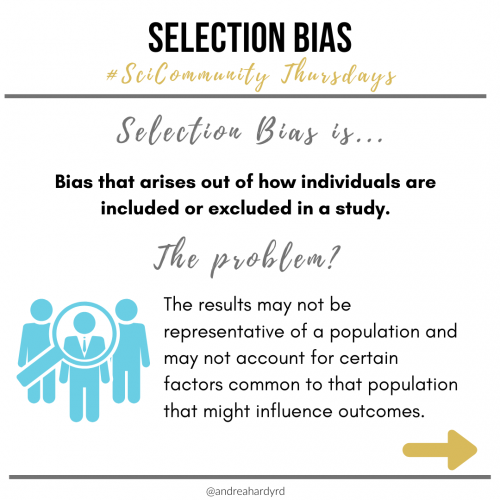
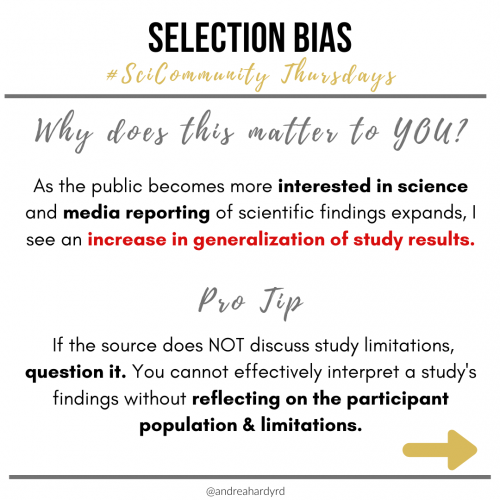
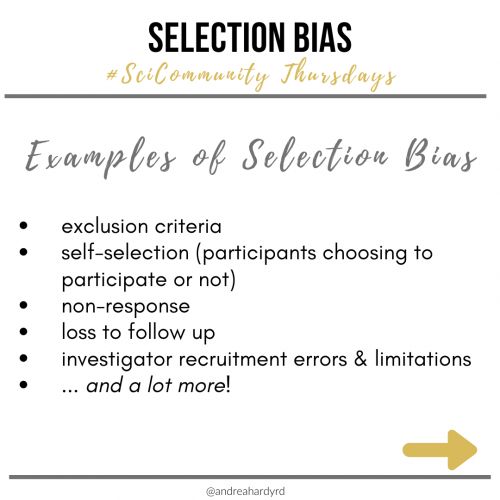
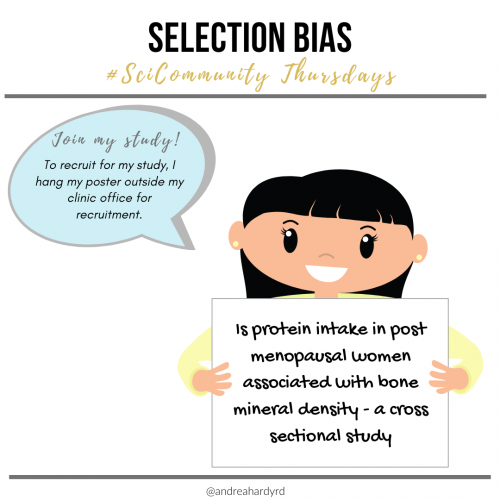
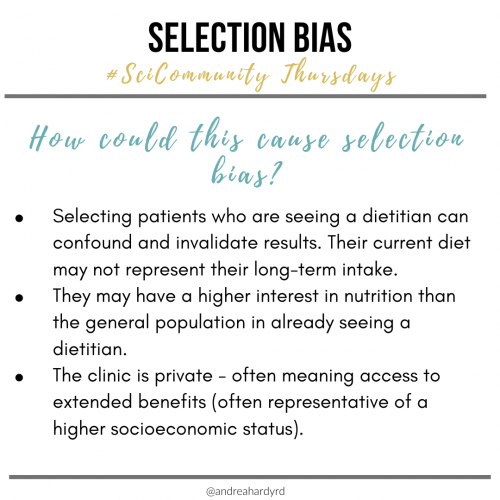
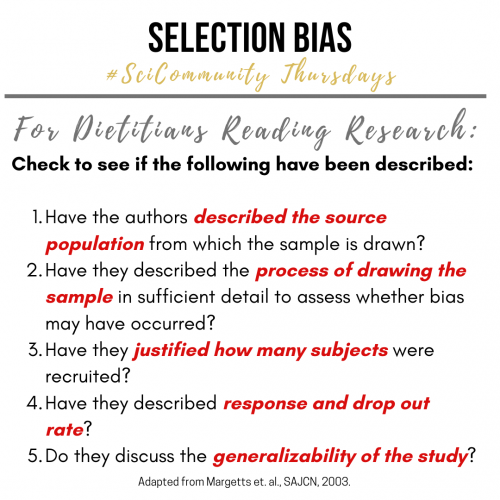
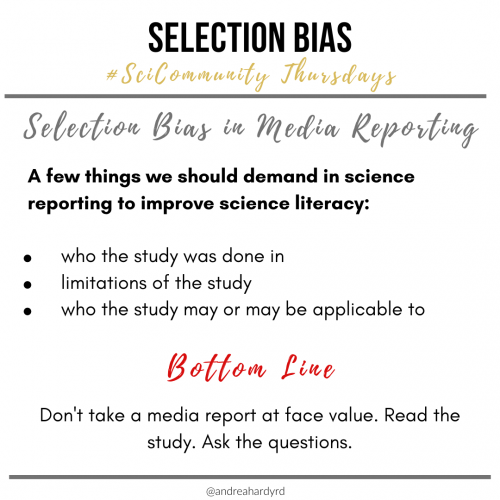
Recent Comments